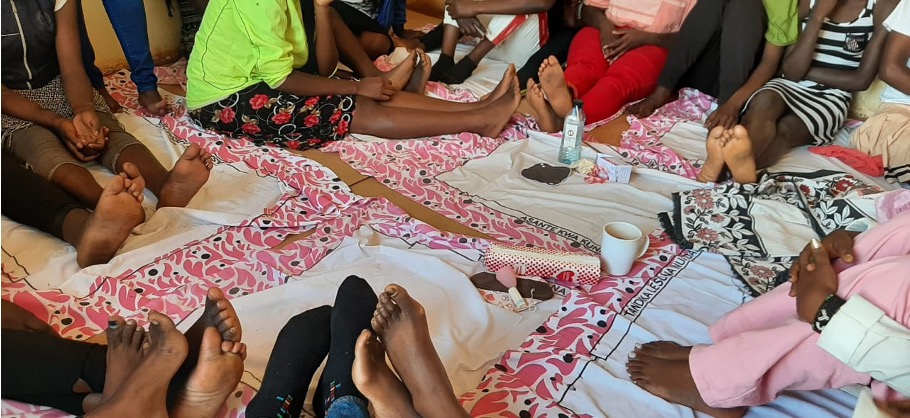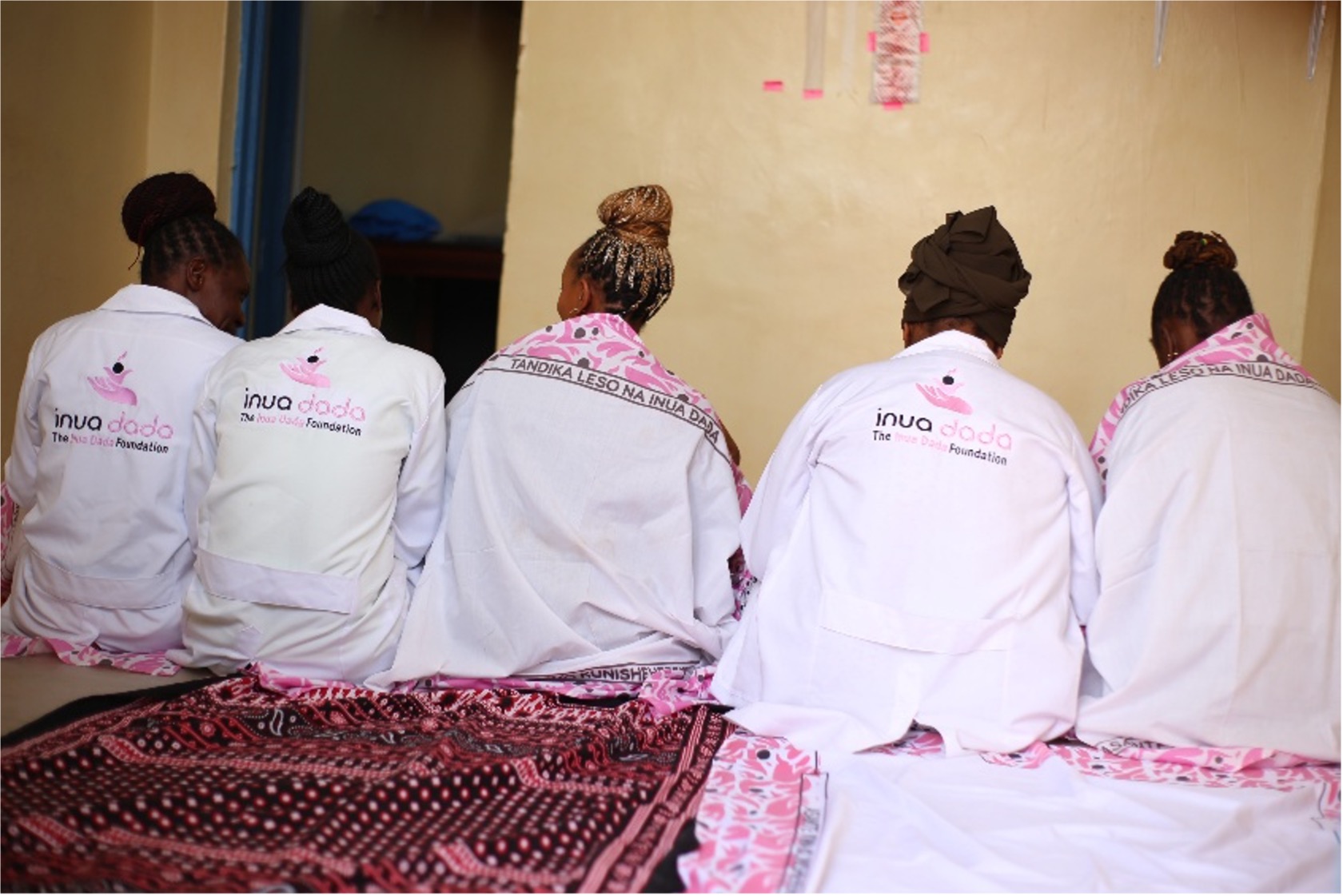
Tandika Lesso 2024: Weaving Threads of Justice, Dialogue, and Empowerment
- Home
- Our Projects
- Tandika Lesso 2024: Weaving Threads of Justice, Dialogue, and Empowerment

Tandika Lesso 2024: Weaving Threads of Justice, Dialogue, and Empowerment
In 2024, the Tandika Lesso program by the Inua Dada Foundation (IDF) continued its powerful mission of fostering social justice, community healing, and inclusive dialogue across Kenya. Rooted in the rich symbolism of the Lesso—a traditional East African fabric commonly used by women to communicate messages of hope, resistance, and solidarity—the initiative unfolded across Nairobi, Kiambu, and Kakamega counties with renewed purpose and growing impact.
The 2024 year’s activities reaffirmed IDF’s belief that meaningful change begins when communities are given the space, tools, and language to speak boldly, listen actively, and act collectively.
The Lesso as a Platform for Change
At the heart of the Tandika Lesso program lies a simple but profound concept: spreading out a Lesso to create a safe and culturally grounded space where difficult conversations can unfold. The fabric becomes more than cloth—it becomes a canvas for storytelling, truth-telling, and transformation.
Using the Lesso as a metaphor and medium, IDF mobilized individuals—particularly women and youth—to unpack and address some of the most pressing issues facing their communities. These include menstrual health, gender-based violence (GBV), sexual and reproductive health rights (SRHR), teenage pregnancy, and consent.
In each session, the Lesso became both a literal and symbolic meeting ground where traditional wisdom met contemporary challenges—and where lived experiences were validated and honored.
Achievements in 2024: Numbers and Narratives
Over the course of the year, 24 Tandika Lesso sessions were held across three counties—Nairobi, Kiambu, and Kakamega—reaching a total of 858 participants. Notably, 12% of attendees were men, a significant step toward inclusive community transformation. By encouraging male involvement, IDF began to dismantle harmful gender dynamics that often isolate reproductive and health-related conversations to women alone.
The participants—ranging from adolescent girls and young women to community leaders and educators—engaged in interactive discussions, workshops, and peer-sharing circles. Topics explored included:
- Menstrual health management and stigma
- Gender-based violence prevention and response
- Teenage pregnancy awareness and reproductive rights
- Sexual health, consent, and bodily autonomy
- Male allyship in advancing gender equality
- Menstrual Waste disposal best practices[OR1]
Each session was intentionally designed to not only educate but also empower participants to become local advocates. By combining culturally relevant storytelling with rights-based messaging, the program left communities better equipped to challenge harmful norms and support survivors.
Collaborations that Strengthened Reach and Impact
A key factor behind the program’s success in 2024 was strategic partnership and collaboration. IDF partnered with a diverse network of organizations that brought technical expertise, local knowledge, and extended community trust to the table. These included:
- YOMOSCO (Youth Movement for Social Change Organization) – contributing grassroots mobilization and peer facilitation.
- USIU (United States International University-Africa) – providing academic insight and youth engagement strategies.
- Médecins Sans Frontières (MSF) – offering medical and psychosocial support, particularly in GBV response.
- WKSP[OR2] /USAID - strengthening women’s voices and feminist leadership and supporting broader health rights and community development frameworks.
These partnerships helped enrich the content of the sessions and ensured that referrals, resources, and follow-up services were available to participants when needed. They also allowed the Tandika Lesso model to adapt to different local contexts while staying rooted in its core mission.
Voices from the Lesso: Stories of Empowerment
The impact of Tandika Lesso is perhaps best understood through the words and actions of its participants. One young woman from Kakamega shared:
"For the first time, I was able to talk about what happened to me without fear. I realized I am not alone, and there is help. I have even started supporting my friends who are going through the same."
In Nairobi, a male participant remarked:
"As men, we were silent before. But now I know that silence can make things worse. We must protect our sisters, daughters, and wives—not just physically but emotionally and socially."
These reflections underscore how the Tandika Lesso space acts as both a mirror and a catalyst. By holding up a mirror to community challenges and inequities, it enables participants to confront uncomfortable truths. But it also catalyzes change by nurturing empathy, responsibility, and collective resolve.
Beyond Awareness: Building Agency and Advocacy